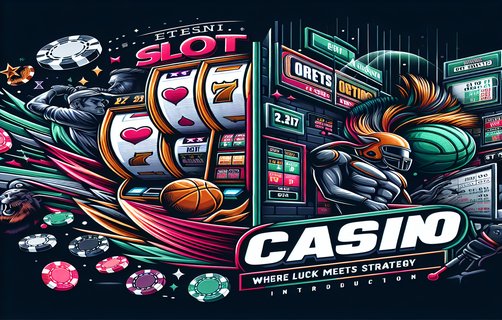The Economics of Real Money Casino Games: An Analytical Perspective on Modern Strategies
The world of online casinos has undergone significant transformation, particularly with the rise of real money gaming. As players are drawn into the thrill of wagering, a variety of strategies and mechanics have developed, shedding light on both their economic implications and practical applications. This analysis will explore cascading reels, casino audits, heads-up strategies, real-time betting, lay betting, table awareness in poker, and the importance of casino guides, examining each element from multiple avenues.
Cascading Reels represent an innovative approach to slot machine design that offers players the chance to win multiple times within a single spin. This mechanic allows symbols to fall into place in a cascading manner — when a winning combination is formed, those symbols disappear, making room for new icons to drop from above. Economically, this design benefits the casino by engaging players longer, as the potential for repeated wins within a single play enhances user experience. From a strategic perspective, understanding how cascading reels function can be pivotal for players looking to maximize their return on investment (ROI). The mathematical probabilities of symbol combinations under this system can effectively transform a standard slot game into a more complex economic puzzle.
Casino Audits serve as an essential mechanism for ensuring fair play within the gambling industry. Regulatory bodies conduct these audits to guarantee compliance with gaming laws and standards. The economic theory of trust plays a crucial role here; players need to feel confident that the outcomes are genuinely random and not manipulated. This assurance fosters a healthy gambling environment, thus allowing casinos to maintain a steady stream of customer engagement. The audits ultimately protect both the player and the operator, as trust in the gaming system leads to higher stakes and more significant bets, enhancing overall profitability.

A Heads-up Strategy is critical in poker, particularly in one-on-one scenarios where every decision is magnified. Understanding the economic implications of playing conservatively versus aggressively can be analyzed through game theory. An effective heads-up strategy incorporates the concepts of risk management and expected value, where players must balance the short-term gains of aggressive plays against the long-term sustainability of their bankroll. Players who can adeptly read their opponents and adapt their strategies accordingly will find themselves in a more favorable economic position over time.
Real-Time Betting has revolutionized sports gambling, enabling players to place wagers as events unfold. This innovation presents a new frontier in economic strategy as the odds fluctuate dynamically. Players must be quick to analyze situational statistics, forming actionable insights that could lead to profitable betting opportunities. The application of real-time data analysis mirrors financial market trading, where traders swiftly assess and react to market conditions. The economic theory of information asymmetry is pertinent in this context—those who can process information faster than their opponents stand to gain the most.

Lay Betting introduces an intriguing economic strategy in gambling, allowing players to bet against a particular outcome. This concept aligns closely with principles of financial hedging, where mitigating risk is paramount. The availability of lay betting gives players the tools to safeguard their bankroll against losses while capitalizing on favorable odds. Analysis of this mechanism enhances understanding of market behavior and reinforces the utility of a diversified betting portfolio.
Table Awareness in Poker is a critical skill that involves understanding the dynamics of various players at a given table. Social capital in this context can significantly impact individual economics within the game. Recognizing the tendencies, strengths, and weaknesses of opponents establishes a framework for strategic decision-making. By leveraging this awareness, players can create more lucrative opportunities, thereby enhancing their gameplay experience and economic outcomes.
Lastly, Casino Guides provide an invaluable resource for players looking to navigate the complexities of real money gaming. These guides incorporate elements of behavioral economics, illustrating how players can optimize their strategies to align with their individual risk tolerances. They aid in developing a thorough understanding of rules, odds, and successful tactics, ultimately contributing to responsible gambling practices and informed decision-making.
In conclusion, the analysis of real money casino games through the lenses of economic theory reveals a multifaceted landscape filled with opportunities and strategies. From the mechanics of cascading reels to the nuances of heads-up poker play, players equipped with knowledge, awareness, and strategic foresight can navigate this evolving market to achieve optimal returns.
